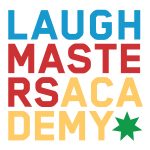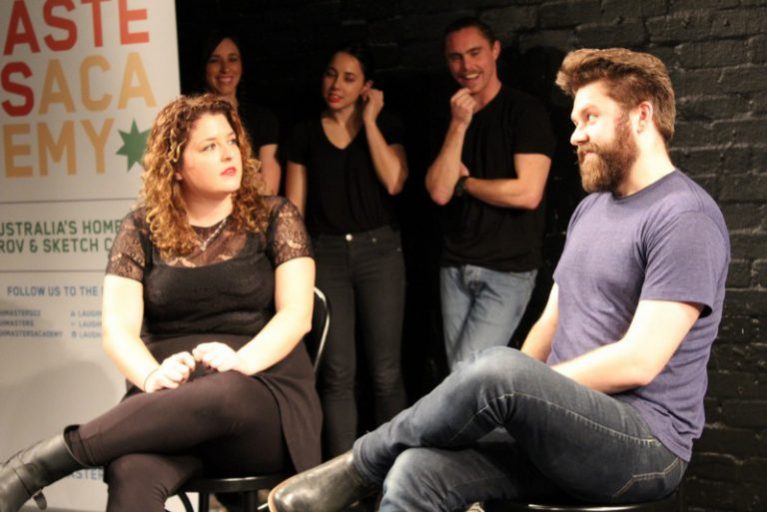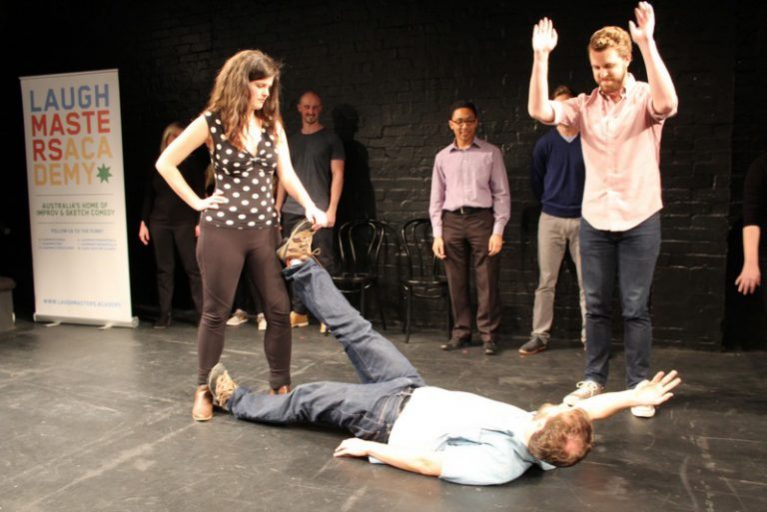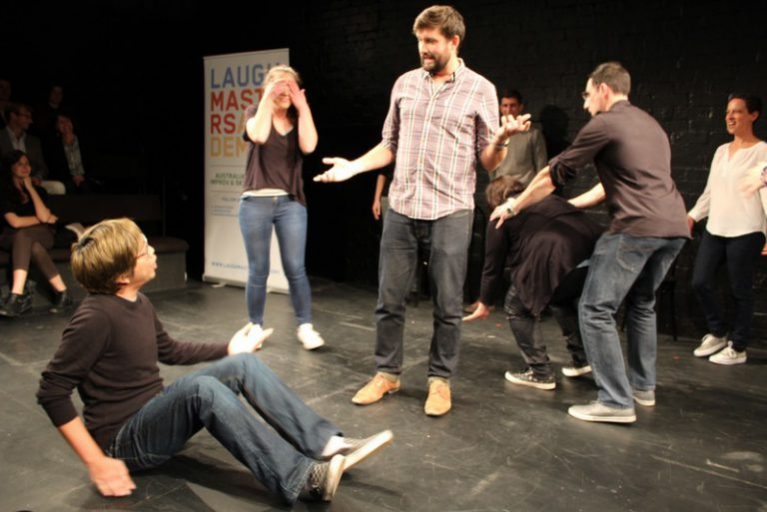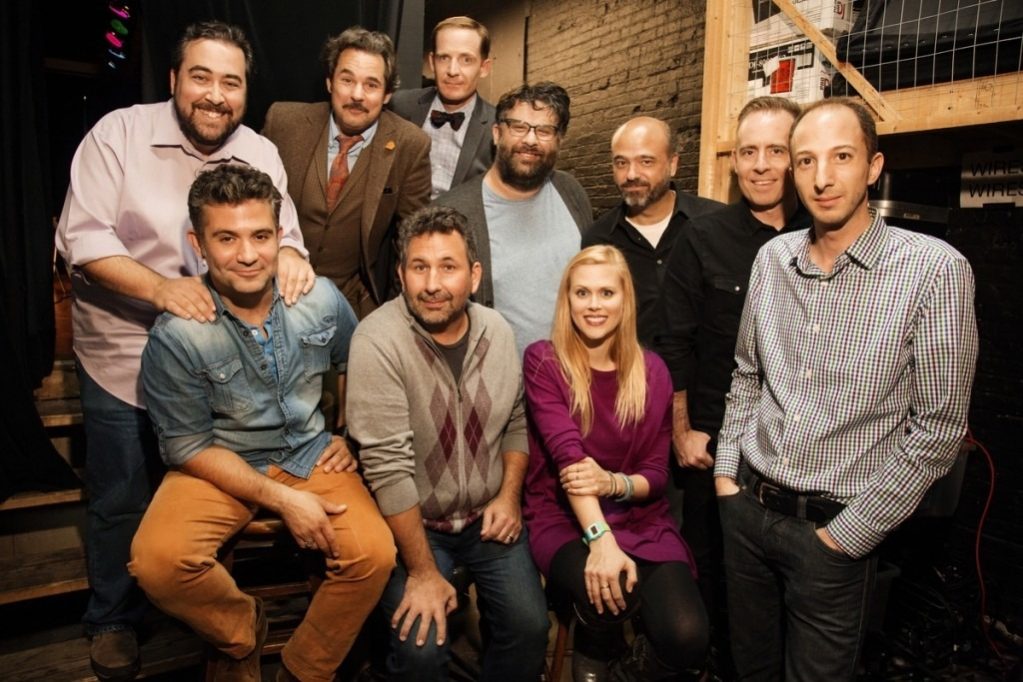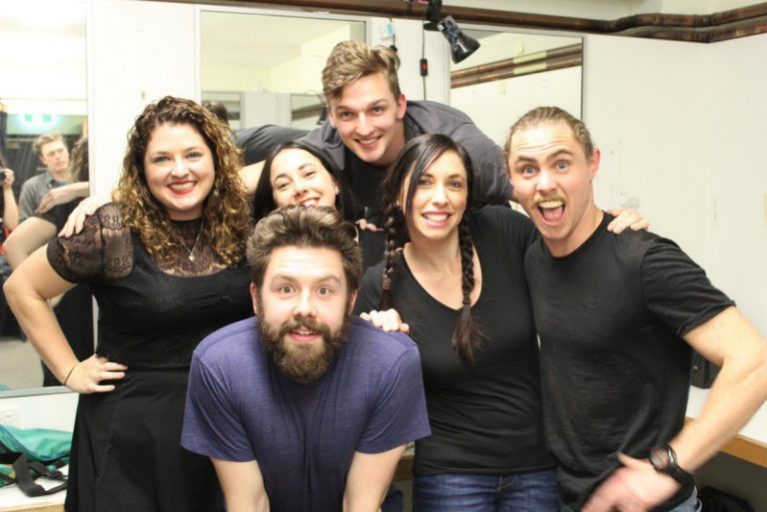Coaching Improv:
A short Q & A
- January 27, 2018
- Posted by: David Tieck
- Category: House Teams , Improv.Blog ,

Improv teams and improv practice groups have (or should have) Coaches.
That’s just the way it works. All the best teams ever have had them.
But it seems like there is far less information out there on coaching, than just about any other element of improv. So I thought I’d answer a few questions.
Q: Should my team or practice group get a coach?
A: Yes. Simple as that. You’ll always be better off, with a coach. ALWAYS.
Q: Could I, or should I, personally coach an improv team?
A: Yes. You could AND definitely should.
Q: Yeah ok, but in reality, do I have enough experience?
A: Depends. Ideally you’ll have finished at least four levels at a long form school (not necessarily the one where the players your coaching are from). And/ or you’ll have been coached in some form. That is you’ve been on either a house or indie team that practiced regularly for a period, and had a coach for those practices.
That’s ideally, but hey, when is anything ever ideal?
Truth is if you care about long form improv, and if you’re reading this you probably do, then there almost definitely will be teams and practice groups where you’ll be a valuable coach right now.
So hey, if you’re in level three, and you meet a bunch of level ones that want more practice time, then hell yeah, offer to coach them. It’ll be awesome for you all.
Q: Can I coach if I’ve never taught a class?
A: Absolutely. Plus don’t forget, as with every part of this art form, just have fun with failure. Boom. It works in scenes, shows, and coaching. You’ll learn. Learning things is great. That’s right I’m offering you greatness.
Q: What’s in it for me?
A: Possibly money. At any level it’s nice to throw even $5/ $10 each to get someone to come coach your team. If you’re just starting out maybe offer yourself for free. Barter systems are good. If you’re on a team offer to coach another team, if one of their team will come coach you.
More than pay though is learning. Coaching will teach you so much as a performer. It’s improv grad school!
Q: Ok, you’ve convinced me, but what do I actually do as a coach?
A: Let’s break it down. Basically, the easy answer is, you meet with a team regularly, you have some plans for warm ups, you have something you want to work on with your team, and you have a plan on how to work on it.
Q: Walk me through warm ups?
A: Try to have at least three things: Something to warm up the body, something to warm up the brain, something to get everyone in the silly brain. Anything you’ve done in a class works, your team may find favorites, you can invent stuff, you can read warm up ideas on line, just have a plan, it’s that simple.
Q: And then what do we work on?
It depends on the team. If it’s a practice group made up of level ones, then you probably just want to give them more time playing the games they’ve tried in class. If it’s an indie team wanting to get better at tag outs, or group games, or edits, then plan a few exercises to work on these things. It may be something you’ve noticed they need work on, or something they specifically have asked to work on, it may be something you yourself have always thought you’d like to see, or try, or play with. It may be practicing running full shows. But again, just have a plan. A few exercises to play with, and a reason, or goal to achieve from them.
Q: It’s day one with a new group, how do I know what they need work on?
A: Ask them. It’s better to do so before the session than in the room, so you can make a plan. Or you can play games and run some scenes and see where you need to go from there. Again, just have a plan and go for it.
Whenever I take on a new team, or join a new team looking for a coach, there are a couple of key things I think about:
Form – Is this a Harold team? Have they asked me to work on a specific form? Some teams want the coach to pick a form or style for them. Some teams want to play and see what they organically gravitate towards, and decide on a form that works for that.
If you’re just starting out coaching, chances are so too will be the team, so make it easy. Work on getting good scenes and then keep trying different things as time goes on.
Q: Should I give notes?
A: Yes. Not too many though. No one wants to hear or read thousands of words thrown at them. Help maintain a fun, safe to take chances, and fail safely, space. But also point out stuff like “hey that character just said they were made of ice and melting, and you didn’t acknowledge it.” Scene partners should always acknowledge people melting.
Q: Should I go to any shows they have?
A: Yes. Watch them. Nake notes. Give notes. Make them brief, but break down the show, scene by scene. “This scene was awesome” is a great note for an awesome scene. “Could have used a quicker edit,” or “you missed the offer of the dandelion,” or whatever you noticed could have helped, is also fine. You’ll learn. Giving notes is a learned skill as anything. But learning to do it will make you a better, more engaged, and observant improviser.
Q: Fine, I’ll coach a team. What else?
A: I think we all need to start more teams. If there are two people from a class you’ve been in that you’ve done some good scenes with ask them to be in a team with you. Trios, duos, eightos. More teams is more better.
Make sure you post on the LMA page, and other improv pages that you’re keen to do some coaching. Tell your teachers. Tell me. Soon I want a document somewhere of all the indie teams, and all the people open to coaching. Let’s make some matches.
Use the comments below and type in “I’m keen to coach” (if you are). If you’re a team without a coach write “My team needs a coach.” If you just want to be on a team, but don’t have one, write “I’m looking for people to play and practice with, and we’ll need a coach.”
Q: Any last words on this?
A: Sure. I’ll tell ya a little story. When I was about a year into my improv life, I did a show at UCB in LA, and we got notes after, as you always do. I did pretty good, but missed a couple of things, and was already beating myself up about them. The coach said “you did pretty good, but you missed a couple of these things.” And I thought to myself “I don’t need to get notes anymore, I know when I’ve done something wrong on my own.”
Then I watched legendary team Sentimental Lady. They were brilliant. I went to the green room to grab my bag afterwards and there they were, getting notes from their Coach. They all had ten years on me, all were teachers and stars, but they still took notes.
And here’s why: it helps you get better. Alway and forever.
Author: davidtieck
Leave a Reply Cancel reply
You must be logged in to post a comment.
